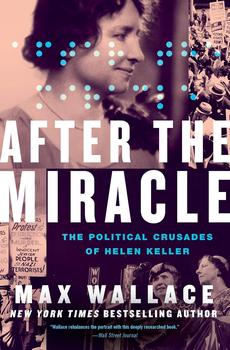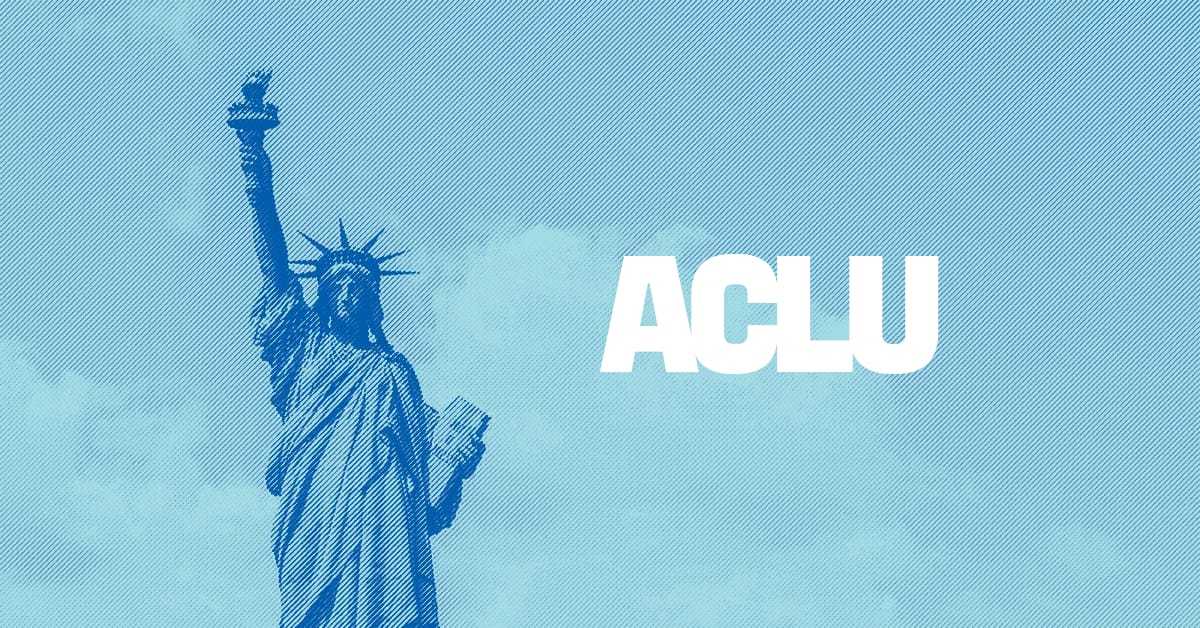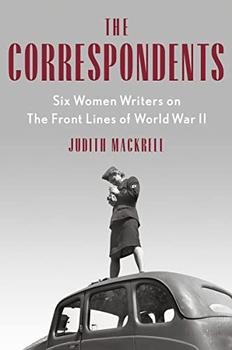Summary | Excerpt | Reviews | Beyond the book | Read-Alikes | Genres & Themes | Author Bio

The Political Crusades of Helen Keller
by Max WallaceIn this powerful new history, New York Times bestselling author Max Wallace draws on groundbreaking research to reframe Helen Keller's journey after the miracle at the water pump, vividly bringing to light her rarely discussed, lifelong fight for social justice across gender, class, race, and ability.
Raised in Alabama, she sent shockwaves through the South when she launched a public broadside against Jim Crow and donated to the NAACP. She used her fame to oppose American intervention in WWI. She spoke out against Hitler the month he took power in 1933 and embraced the anti-fascist cause during the Spanish Civil War. She was one of the first public figures to alert the world to the evils of Apartheid, raising money to defend Nelson Mandela when he faced the death penalty for High Treason, and she lambasted Joseph McCarthy at the height of the Cold War, even as her contemporaries shied away from his notorious witch hunt. But who was this revolutionary figure?
She was Helen Keller.
From books to movies to Barbie dolls, most mainstream portrayals of Keller focus heavily on her struggles as a deafblind child—portraying her Teacher, Annie Sullivan, as a miracle worker. This narrative—which has often made Keller a secondary character in her own story—has resulted in few people knowing that her greatest accomplishment was not learning to speak, but what she did with her voice when she found it.
After the Miracle is a much-needed corrective to this antiquated narrative. In this first major biography of Keller in decades, Max Wallace reveals that the lionization of Sullivan at the expense of her famous pupil was no accident, and calls attention to Keller's efforts as a card-carrying socialist, fierce anti-racist, and progressive disability advocate. Despite being raised in an era when eugenics and discrimination were commonplace, Keller consistently challenged the media for its ableist coverage and was one of the first activists to highlight the links between disability and capitalism, even as she struggled against the expectations and prejudices of those closest to her.
Peeling back the curtain that obscured Keller's political crusades in favor of her "inspirational" childhood, After the Miracle chronicles the complete legacy of one of the 20th century's most extraordinary figures.
The book covers a wide swath of history for a single lifetime—from Jim Crow to apartheid, World War I to McCarthy's Red Scare, Helen Keller used her fame to fight for what she believed in. Wallace's writing is nuanced, neither diminishing her accomplishments nor overlooking her missteps, but instead returning Keller to the center of her own life story. After the Miracle is a portrait not of a saint or a miracle, but a woman with strong convictions living in a complicated world. I would highly recommend it for readers interested in civil rights and disability advocacy, or in 20th-century history more generally...continued
Full Review
 (695 words)
(695 words)
(Reviewed by Katharine Blatchford).
 In Max Wallace's absorbing biography of Helen Keller, After the Miracle, the author illuminates Keller's often overlooked dedication to the fight for civil rights. Through her lifetime, she was involved with a wide number of causes and organizations, from joining the Socialist Party to campaigning against U.S. involvement in World War I, to speaking out against apartheid. One of the ways she has left a lasting legacy is as a founding member of the American Civil Liberties Union (ACLU).
In Max Wallace's absorbing biography of Helen Keller, After the Miracle, the author illuminates Keller's often overlooked dedication to the fight for civil rights. Through her lifetime, she was involved with a wide number of causes and organizations, from joining the Socialist Party to campaigning against U.S. involvement in World War I, to speaking out against apartheid. One of the ways she has left a lasting legacy is as a founding member of the American Civil Liberties Union (ACLU).
The start of what would become the ACLU grew out of concerns about U.S. involvement in World War I, and how it was affecting American society. In 1915, a group of pacifists in New York City founded the Anti-Militarism Committee, which would go by multiple...

If you liked After the Miracle, try these:

by Anna Funder
Published 2025
This is the story of the marriage behind some of the most famous literary works of the 20th century - and a probing consideration of what it means to be a wife and a writer in the modern world.

by Judith Mackrell
Published 2023
The riveting, untold history of a group of heroic women reporters who revolutionized the narrative of World War II - from Martha Gellhorn, who out-scooped her husband, Ernest Hemingway, to Lee Miller, a Vogue cover model turned war correspondent.